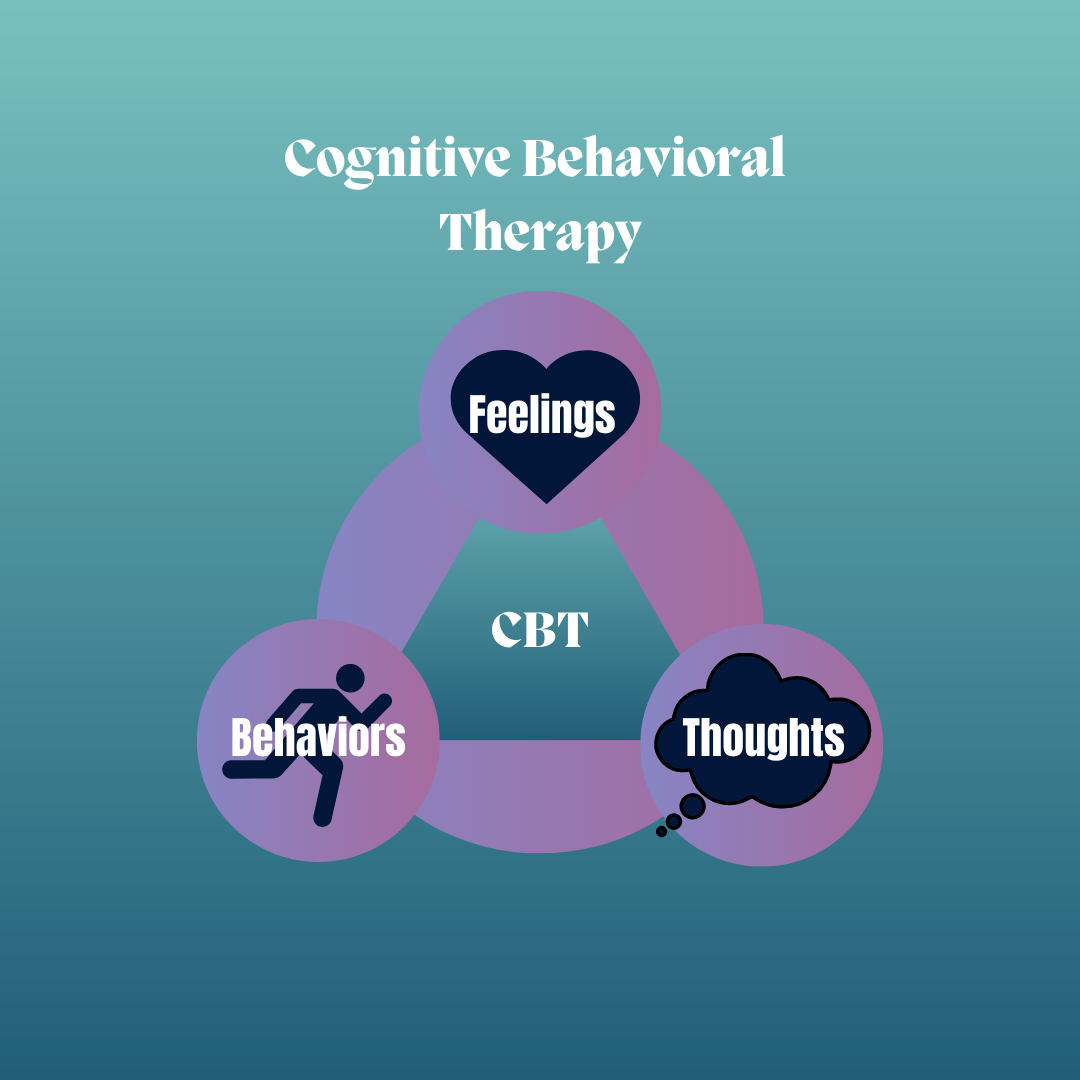
What does CBT treatment target to help improve mental health?
Cognitions
Definition
Cognitions refer to our thoughts, beliefs, and attitudes. They shape how we perceive ourselves and the world around us. CBT can help you become more aware and in control of the thinking habits that may be contributing to your mood or to behaviors you’d like to improve.
Examples
- Learning to catch patterns of “catastrophizing” or assuming the worst can help reduce your anxiety and increase your willingness to engage in certain activities that might otherwise feel too risky.
- Noticing and challenging negative self-talk (e.g., “I’m worthless,” “I’ll fail”) that feeds depressed mood and withdrawal from activities.
Behaviors
Definition
Behaviors are the actions we take in response to our thoughts and feelings. They influence our daily functioning and emotional well-being
Examples
- Addressing avoidance of social situations due to anxiety
- Changing habits of neglecting self-care (e.g., not eating well, lack of exercise)
- Planning and scheduling activities that improve mood and sense of accomplishment.
What are the benefits of CBT Treatment?
Cognitive Therapy for Anxiety, Depression, and More
CBT is a therapeutic approach with robust research support. It is an evidence-based approach that has been proven effective for a variety of mental health disorders, including depression, anxiety disorders, insomnia, and PTSD. Patients often experience a significant reduction in symptoms and an improvement in quality of life. Moreover, the skills learned during CBT sessions empower individuals to become their own therapists, with tools to cope with future challenges.
Other benefits of the CBT approach:
- Structured: CBT therapists use a very active and structured approach to make sure you are spending session time learning the skills you need to feel better
- Goal-oriented: Treatment is focused on achieving outcomes and treatment effectiveness can be measured based on if you have reached those goals, for example, being able to do certain activities that you used to avoid
- Short-term: CBT was designed to require fewer sessions to achieve results, though many people choose to continue seeing their therapist as long as they still find therapy helpful
CBT Strategies
- Noticing and labeling unhelpful thinking patterns (e.g., “black and white thinking” or “catastrophizing”)
- Testing out and modifying unhelpful assumptions (such as “everyone must like me”)
- Recognizing unhelpful patterns of avoidance
- Monitoring mood changes with changes in activity
- Planning and scheduling pleasurable activities to improve mood
- Practicing more effective strategies for tolerating distress
- Learning and practicing problem-solving skills
- Learning and role-playing skills such as assertiveness and effective communication
Why Choose Anxiety Care NY for CBT?
Here at Anxiety Care NY, we are committed to taking an active approach that effectively addresses the intricate connection between your thoughts, behaviors, and emotions. We offer comprehensive strategies to combat a range of issues from depression to insomnia. Your CBT treatment with us will not be cookie-cutter; we recognize the need to understand you in your entirety and to tailor treatment to your unique needs.
CBT Treatment in Rockville Centre, NY
Identify and change unhelpful patterns of thinking and behavior with CBT in Rockville Centre and online across NY & NJ. Get help today.
